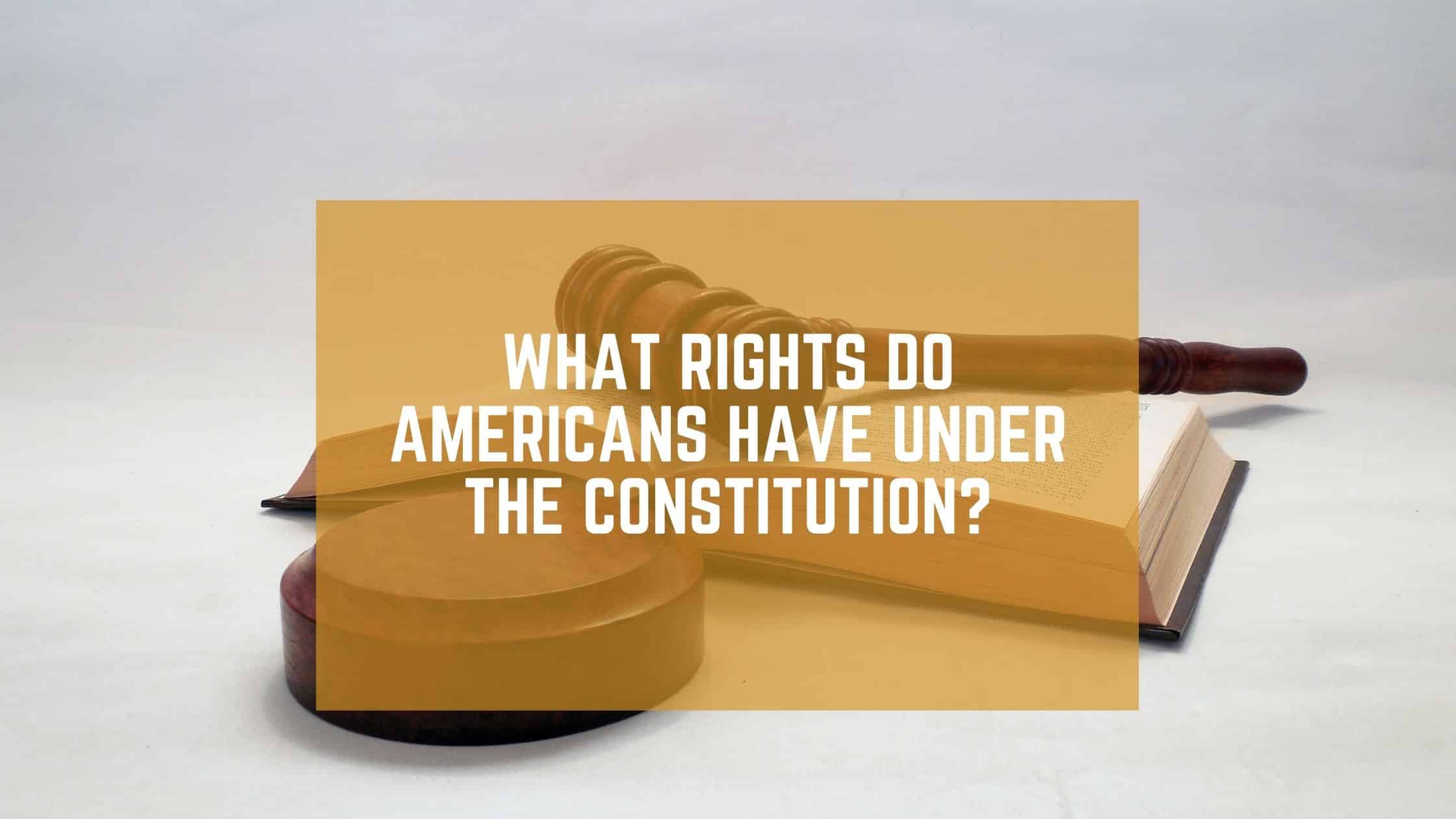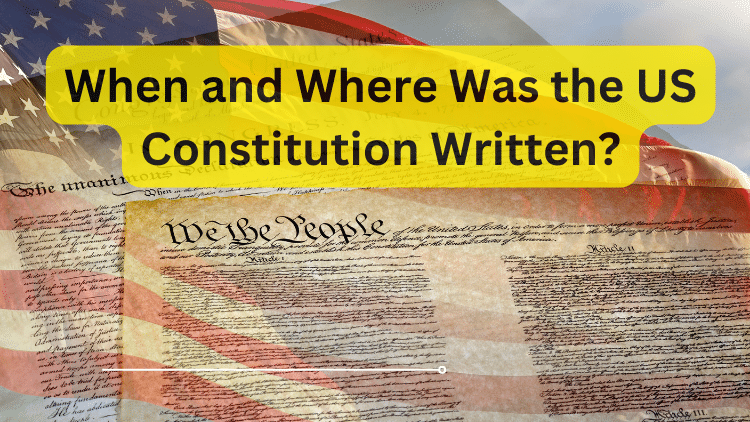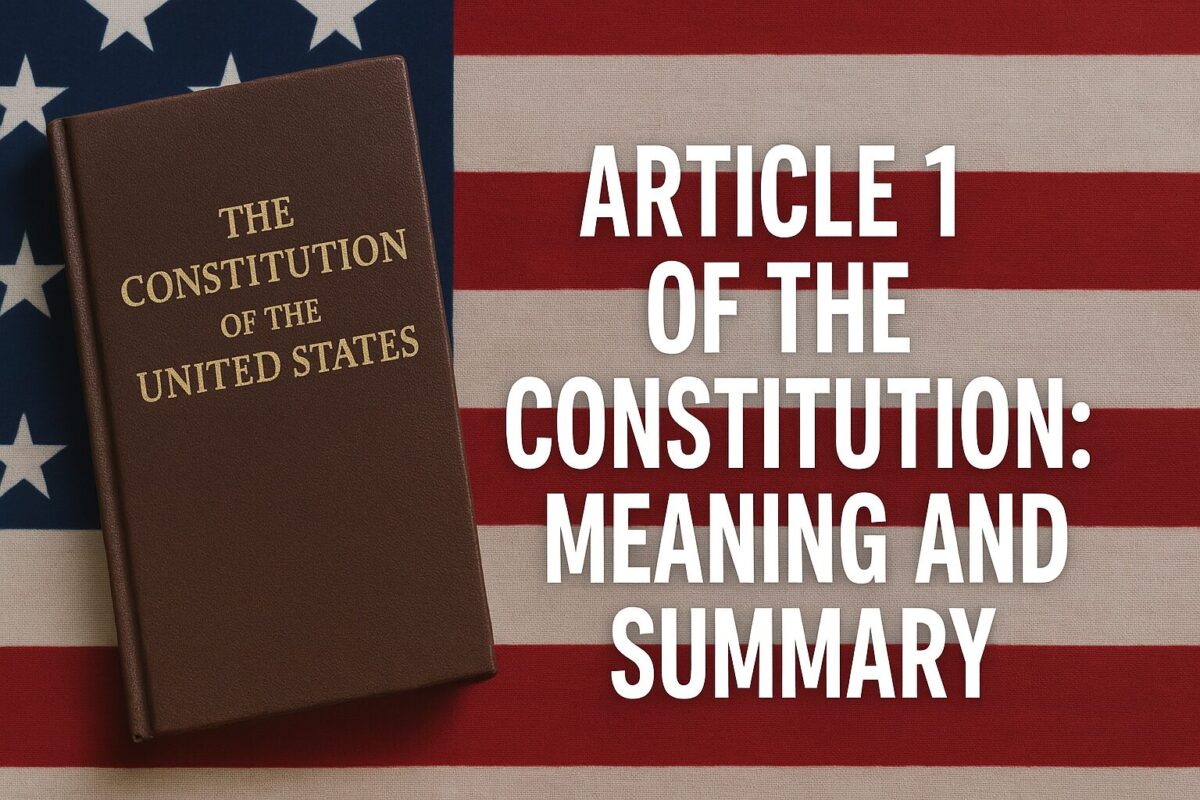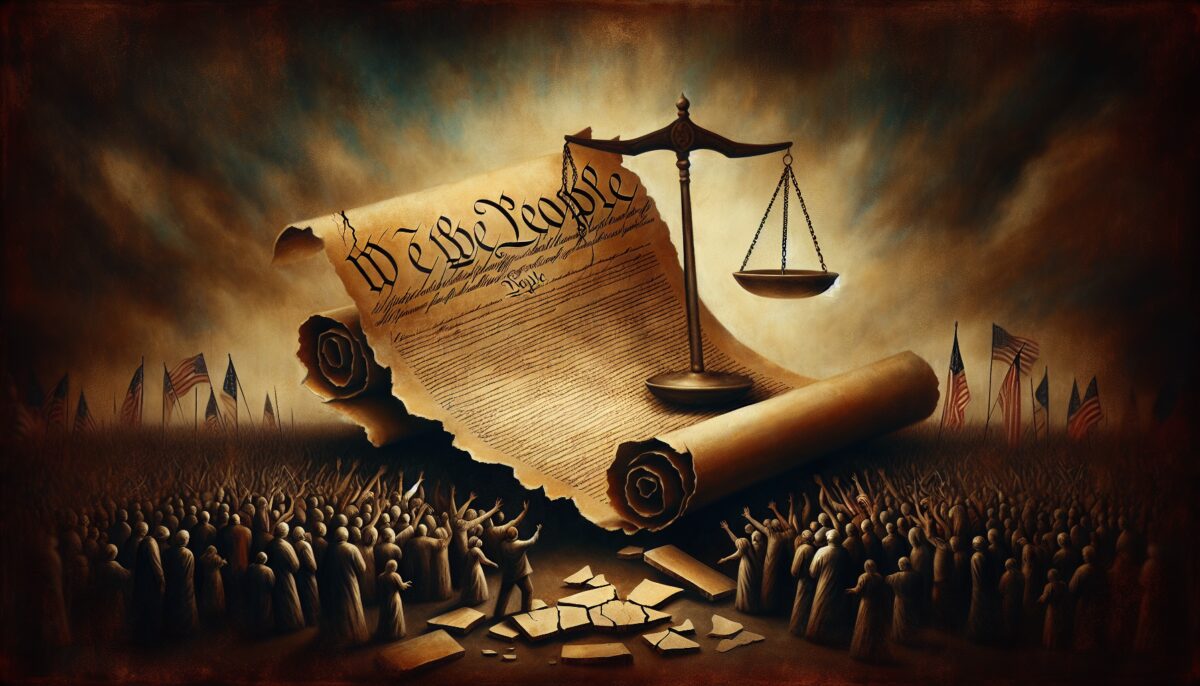Table of Contents
ToggleConstitutional Amendments and the Bill of Rights
Most of the amendments in the Bill of Rights and some amendments passed since then give rights to American citizens. Freedom of speech, the right to bear arms, and the prohibition of cruel and unusual punishment come from the Bill of Rights. The end of slavery and the end of discrimination in voting rights came from later amendments.
The First Amendment
The First Amendment covers freedom of speech, religion, assembly, the press, and citizens’ right to petition the government and ask them to make changes. It is one of the best-known parts of the Bill of Rights, the first ten amendments that gave rights to citizens and limited the powers of the central government.
The First Amendment gives Americans more freedom of speech than people in most other countries have. Even other democracies and other wealthy countries often pass laws that would be against the First Amendment in the United States.
Everyone has the right to freedom of speech in the United States. If someone is under 18, the First Amendment still protects their freedom of expression. Even foreigners living in or visiting the United States have First Amendment rights. The First Amendment is neither left-wing nor right-wing, and it has been used many times to defend the speech of people on both political sides.
The First Amendment Prevents a State Religion and Makes Demonstrations Legal
The First Amendment also prevents the government from creating a state religion. It requires the government not to interfere unduly in the people’s religious beliefs or compel them to worship in any way they do not want to.
There is also the right to publicly demonstrate without being arrested. Unless they pose a clear danger to others, these peaceful protests must be allowed.
The government cannot shut down protests, it says, because doing so may offend people or create a disturbance. You also cannot be forced by the government to say anything or prevented from receiving information.
What Are the Limits?
Slander is not protected by freedom of speech laws. If you lie about someone else and hurt their reputation, they can use the law against you. You cannot say anything false that will ruin another person’s reputation.
Threats are never covered by freedom of speech laws. Threatening to kill or hurt someone is a crime. Doing something like yelling “fire” in a theater or “bomb” on an airplane is illegal.
Offensive But Not Violent Speech is Allowed
Speech that incites violence or poses a risk to public safety exceeds the limits of freedom of speech. Racist speech is often allowed, but it becomes incitement if it goes too far.

Get Smarter on US News, History, and the Constitution
Join the thousands of fellow patriots who rely on our 5-minute newsletter to stay informed on the key events and trends that shaped our nation's past and continue to shape its present.
The First Amendment does not prevent non-government censorship. For example, if a social media platform wants to ban some forms of speech, no one can use the First Amendment against them.
In Manhattan Community Access Corp. v. Halleck, the Supreme Court confirmed that the First Amendment limits only the government, not private groups. So, private companies, like social media platforms, can decide what content to allow without violating free speech rights.
The Second Amendment
The Second Amendment protects the right to bear arms and to form militias. It is a controversial amendment, as people strongly disagree over which types of weapons civilians should be allowed to own.
Before the Bill of Rights and the Constitution, many of the original 13 states’ constitutions included something similar to the Second Amendment. Militias come from the Revolutionary War.

At the time the Constitution and the Bill of Rights were drafted, people believed that militias would protect the people from the government. Despite early Americans’ distrust of government soldiers, a federal standing army was considered necessary for national defense. The Second Amendment was created to protect the people against an overly powerful federal government.
The Third Amendment
The Third Amendment favors civilians over soldiers in situations where soldiers need a place to stay. Instead of soldiers being able to stay in the homes of private citizens without their consent, as it was under British law, citizens can refuse to allow soldiers to enter.
The third amendment is much weaker in wartime than in peacetime. In peacetime, soldiers have no constitutional right to stay at private residences. In wartime, soldiers can stay at civilian residences if the law requires civilians to let them stay.
The Fourth Amendment
Like other parts of the Bill of Rights, the Fourth Amendment is there to protect the people from the federal government. The Fourth Amendment protects people from having their houses searched and their property seized without good reason.
Since this is nowhere near an absolute right, the government’s rights are balanced against the rights of the citizens. If the government has a warrant and is trying to protect public safety, it can search a house.
There are also cases where the laws permit officers to search people, vehicles, or houses without a warrant. However, these laws have to be limited, or the Supreme Court would declare them unconstitutional.
The Fifth Amendment
The fifth, sixth, seventh, and eighth amendments are all about making sure the legal system is fair and protecting people from injustice. The Fifth Amendment requires a grand jury to hear a serious case before it goes to trial. The grand jury can reject the case if there is not enough evidence.

The Fifth Amendment also prevents anyone from being charged twice for the same crime and requires due process. Due process is not defined, but in practice, it means that everyone has a legal right to be innocent until proven guilty.
It also allows witnesses to refuse to testify if they would have to admit to a crime to explain what they were doing. Finally, the Fifth Amendment requires the government to compensate people if it takes their property for public use.
The Sixth Amendment
First and foremost, the Sixth Amendment requires a defendant to have a lawyer to defend them. It also requires an impartial jury and makes it illegal to delay a trial for no good reason.
The Sixth Amendment also allows people charged with crimes to know enough information about what they are being charged with. They must know who their accusers are and what crime they are being accused of.
The Seventh Amendment
The Seventh Amendment requires jury trials in most civil cases, making American courts different from those in other countries, including other English-speaking countries. This requirement comes from English common law, which still affects American law today. The seventh amendment also limits when reviewing courts are allowed to re-examine cases tried by a jury.
The Eighth Amendment
The Eighth Amendment prohibits cruel and unusual punishment, as well as imposing excessive fines or requiring excessive bail. In the 18th century, people worried that a corrupt federal government could start using torture as punishment or to extract confessions.
Like many other amendments, the limits of the Eighth Amendment are not written. One could argue that some existing punishments are cruel or unusual. Solitary confinement is harmful enough that some consider it a form of torture.
The Thirteenth Amendment
The Thirteenth Amendment successfully ended slavery in the United States. While equal rights took much longer, the Thirteenth Amendment successfully prevented slavery from coming back in some form after the Civil War.
The Fifteenth Amendment
The 15th Amendment, passed after the Civil War, aimed to eliminate racial discrimination in voting rights. While the amendment theoretically prevented people from having their voting rights removed or reduced due to “race, color, or previous condition of servitude,” many states still had restrictions until the Civil Rights Act of the 1960s.
The Nineteenth Amendment
The Nineteenth Amendment gave women the right to vote and all the rights and freedoms that men have under the Constitution. Passing the nineteenth amendment took many decades of effort.
As early as 1878, people attempted to get something similar to the Nineteenth Amendment passed, but it took another four decades of protests to pass it. Even in the 1910s, most states did not have women’s suffrage, and people still opposed it.











